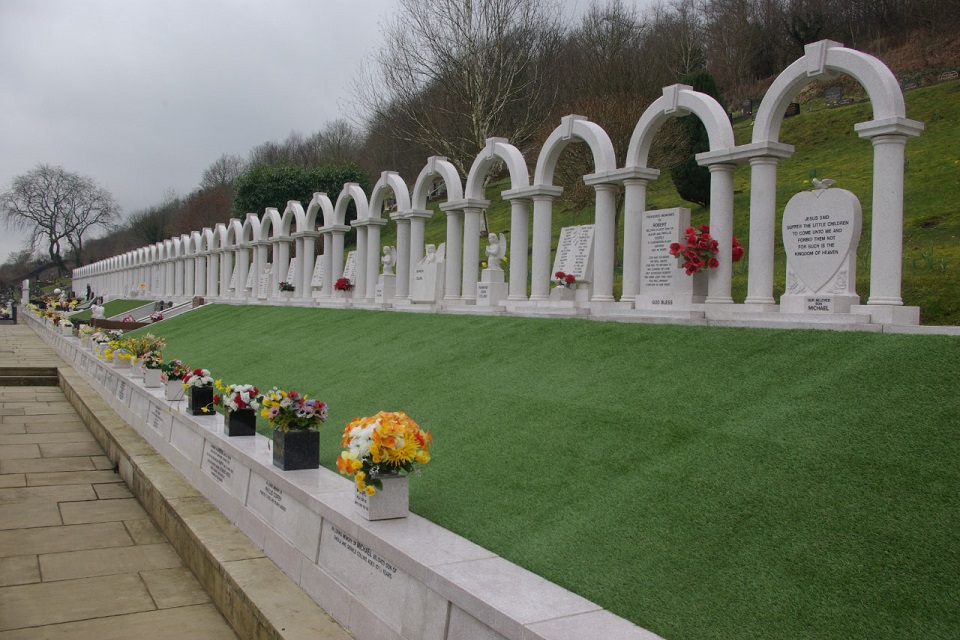Secretary of State for Wales: The legacy of Aberfan
Secretary of State for Wales, Alun Cairns, writes personal piece on the 50th anniversary of the Aberfan disaster.

Alun Cairns, Secretary of State for Wales
This week we prepare to mark the 50th anniversary of the Aberfan disaster, one of most harrowing tragedies to befall Wales in the 20th century.
On October 21st, in public spaces and private places, we will remember 116 children and 28 adults killed when a black wall of coal waste smothered a village school and nearby homes.
The black and white images from the rescue operation are well known and much recent reporting in the run-up to the anniversary has reminded us of the bravery and suffering of the community. The ITV Wales documentary, The Aberfan Young Wives’ Club, revealed in powerful personal accounts, how the families of victims had formed a self-help group of their own; the tight community of the valleys sustained them through the immediate aftermath and the longer haul to come. Another recent news report revealed how one of the first police officers at the scene has only felt able to seek treatment for post-traumatic stress disorder during the last five years.
Many families in Wales will have their own vivid memories of what they were doing when they heard the news about Aberfan. My own father was a steel worker at Port Talbot when Wales and the rest of the world became aware something dreadful had happened. He told me how the whole of the Welsh community and the wider world froze in bewilderment. How could such a terrible tragedy occur?
This answer came from the Tribunal of Inquiry that concluded, ‘the Aberfan Disaster is a terrifying tale of bungling ineptitude by many men charged with tasks for which they were totally unfitted, of failure to heed clear warnings, and of total lack of direction from above’.
I sat down to reflect after a visit to the Aberfan Memorial Garden and cemetery.
Despite the autumnal sunshine on the day I went, bathing the garden and what is now the greenest of hillsides, those famous images we all recognise were all the more vivid.
It was also heartening to see the Welsh football team visit the Memorial Garden last week to quietly pay their respects.
For relatives of those who died, the pain of Aberfan never ends. There is, to cite the rather over-used phrase, no “closure”. I recently met trustees of the Aberfan Memorial Charity, many of whom were survivors, who told me of how those feelings - of loss and anger - don’t really abate over time but that hope and confidence does win through.
No compensation package, no finding of corporate culpability will salve these people’s wounds.
What then, can we offer the people of Aberfan and the neighbouring communities? We are pausing this week to remember a dreadful day in the past; we also need to be able to offer a future for those growing up there.
There are towns in Britain whose name evokes particular tragedies: Dunblane, Lockerbie, Hungerford. Long after the intense media scrutiny has moved on, they have to go on as living communities - respectful of the memory of what has happened, but mindful of the need to provide a future. As one survivor told me, they do not want Aberfan to be defined solely by tragedy.
We have a responsibility to create the right conditions in communities like Aberfan - through supporting local businesses, pushing inward investment and encouraging local enterprise.
The valleys are known for the distinctively Welsh trait of close community spirit.
The miners knew that education was an essential key to expanding horizons. The networks of miners’ institutes across South Wales have been described by one academic as “one of the greatest networks of cultural institutions created by the working class anywhere in the world”. In the 1930s there were around 100 miners’ libraries across the South Wales coalfield - miners read everything from Das Kapital to The Wealth of Nations and everything in between.
We need to continue that educational legacy and ensure that children from the post-industrial communities have their choice of good quality education and the prospect of a good job with a thriving local employer or the opportunity to become entrepreneurs.
Aberfan was the scene of a dreadful catastrophe whose victims we will always remember. Our duty to the people living there now is to ensure that consciousness of a dark past is matched by the brighter future we owe them.
History records that Welsh soldiers sang Myfanwy as they worked to recover victims of Aberfan. Our hope for the village children today might be captured in a lyric from that most haunting piece.
Myfanwy, may your life entirely be Beneath the midday sun’s bright glow, And may a blushing rose of health Dance on your cheek a hundred years
A version of this article appeared in the Sunday Times on 16th October.